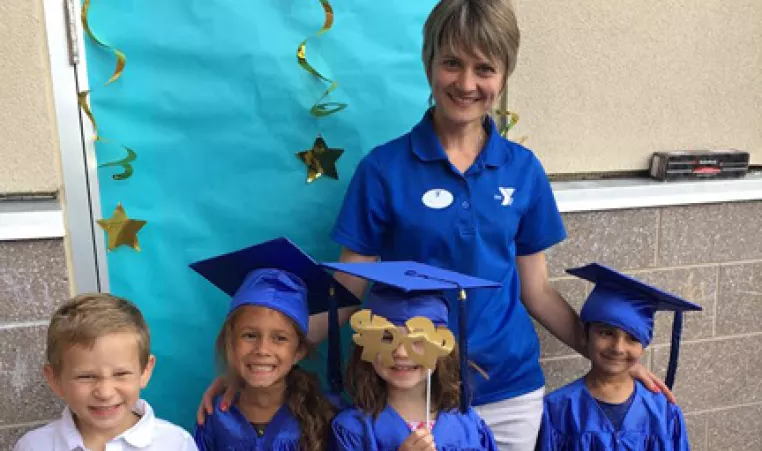Building Self-Esteem and Self-Reliance in your Child with Montessori

By Natalya Kuzovleva, Montessori Teacher at the West Chester Area YMCA
Fostering self-esteem—the ability to accept and appreciate oneself, faults and all—and developing self-reliance are two of the greatest gifts parents can give their children. These traits help people build strong relationships, navigate challenges and make sensible decisions. In short, they lead to happy and successful lives. Unfortunately, far too many people—both children and adults—suffer from low self-esteem which makes them more susceptible to anxiety, depression, eating disorders and more.
Building Self-Esteem and Self-Reliance in your Child
Developing self-esteem and self-reliance begins in childhood—and it starts with parents. As a Montessori preschool teacher at the West Chester Area YMCA, I’ve found some of the best ideas for developing self-esteem and self-reliance within the Montessori method, a child-centered approach to education based on self-directed activity, hands-on learning and collaborative play. Try the ideas below with your children.
- Empower your children to take care of themselves
As parents, we often want to do all we can for our children, but children who learn to do things for themselves come to recognize their own value and believe in themselves. Montessori classrooms are organized so that children learn to take care of themselves. For example, dressing frames teach buttoning, zippering, and ties. Food prep and clean up teach practical life skills like handwashing and sequencing while enhancing fine motor skills. Sewing work teaches skills like sewing on buttons, and hemming while also increasing levels of concentration and focus.
At home, you can empower your children to do things for themselves such as helping prepare a snack (and then letting them do it on their own daily), packing their own lunch for school and/or being responsible for cleaning up and organizing their own belongings, depending on their ages.
- Allow your children to make their own choices
Children who make choices for themselves learn to trust and are often quite proud of themselves. Every day, in Montessori classrooms, children make creative choices in an environment prepared for them by the teachers to optimize productivity. Children can choose work from several different classroom areas that include academic, social, and practical tasks, allowing them to discover what they enjoy most.
Again, depending on their age, you could allow your child to choose his or her outfit, the game or activity he or she wants to play (Tip: The activity chosen by a child will often hold his or her attention longer than the one you choose as the parent.), and/or which book to read at home. (Tip: Providing two options to choose between, as opposed to too many, will empower children to be able to make a choice stress-free. It also lets you to retain some control over the outcome.)
- Give your children jobs or work
Many of you reading this probably had chores growing up – tasks that you were in charge of such as taking out the trash or vacuuming. While helpful to parents, chores are also helpful for kids. Chose age-appropriate chores for your children and recognize them when they do them. From folding laundry to feeding pets to dusting the living room, completing chores gives children a sense of purpose and accomplishment, which helps them to feel good about themselves and recognize their own value. In Montessori, we call the activities “work” to highlight the importance and purpose of each action and activity.
In Montessori classrooms, the five main areas are Sensorial, Practical Life, Language, and Math. Each work period, children choose from these areas based on the lesson given by the teacher. This encourages a sense of freedom of choice and responsibility to grow in each of those areas.
Start Now By Enrolling Your Children in a Montessori Class
Ensuring your children develop self-esteem and build self-reliance is one of the most important ways you can assure their happiness and success in life—and with a little knowledge, you can incorporate small ways of doing this every day.
In addition to the ideas above, consider sending your child to a Montessori school to supplement their development. Learn more about our Montessori programs or request a tour.
Natalya Kuzovleva is a Montessori Teacher at the West Chester Area YMCA.